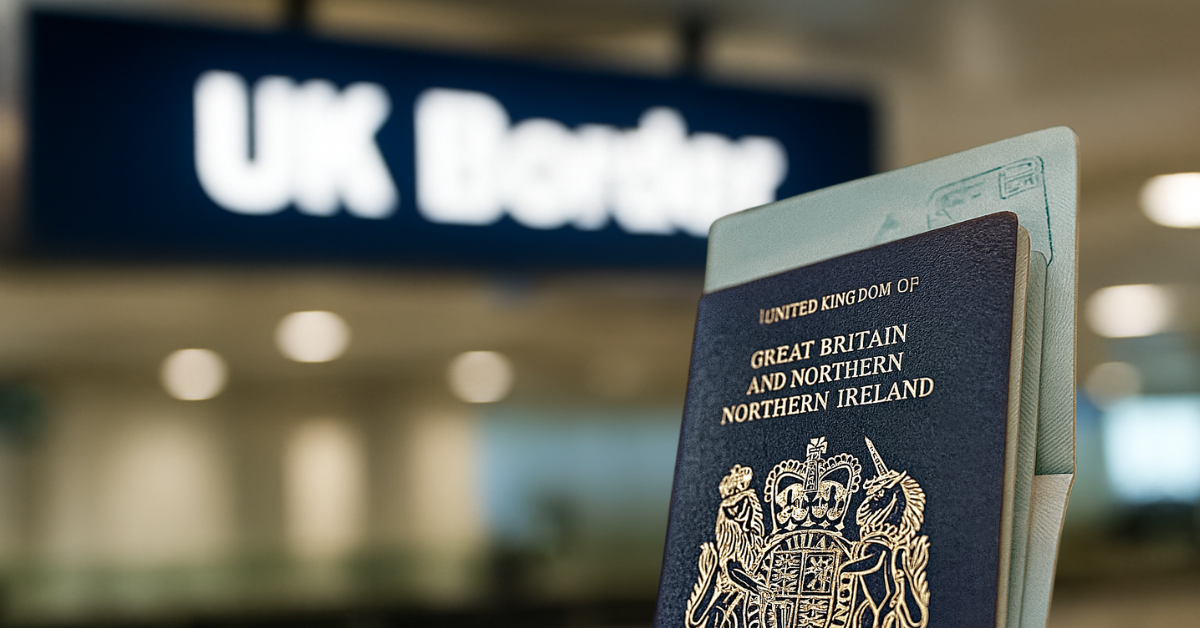
Home Secretary on UK Immigration: Settlement Rules & Border Control
The Home Secretary outlined reforms to UK immigration, including a contribution-based settlement system, stricter border control, and longer ILR routes.

Thal Vasishta
Securing Borders and Restoring Trust in Migration
The Home Secretary has outlined a new vision for UK immigration, emphasising border control, contribution, and public confidence as the foundation for a “greater Britain.” Below, we break down the main points from the speech and explore the potential implications for employers, migrants, communities, and advisors.
Key Themes from the Home Secretary’s Speech and What They Could Mean
National Challenge
The Government’s stated aim is to unite the country, not just secure electoral success. The goal is a “greater Britain” that remains open, tolerant, and generous.
Border Control
-
Control and order at the UK’s borders were framed as essential for sustaining public confidence in migration policy
-
Tackling small boat crossings remains a top priority.
-
Over 1,000 arrivals were recorded on the Home Secretary’s second day in office.
-
UK–France cooperation was described as a “historic step”
-
Early returns show intent in disrupting smuggling gangs.
-
Policy Priorities
The Home Secretary highlighted the following:
-
Disrupt and dismantle people-smuggling networks.
-
Discourage dangerous Channel crossings.
-
Remove individuals without lawful status.
-
End hotel use for asylum seekers accommodation.
-
Prepared to challenge long-standing legal frameworks if necessary.
Migration and Public Confidence
-
UK’s long tradition of welcoming migrants who contribute reaffirmed.
-
Net migration between 2021–24 reached 2.6 million, raising concern over recent scale and pace of migration.
-
Abuse of the Health and Social Care visa route (710,000 arrivals) was highlighted.
-
Illegal working and the black economy were presented as undermining fairness.
Reforms to Migration Rules
-
Crackdown on illegal working and stronger enforcement of fair recruitment.
-
Employers hiring from abroad will face stricter scrutiny and will need to show investment in training the domestic workforce.
-
The speech signalled a move toward a “contribution-based” migration system:
-
Residency for Indefinite Leave to Remain (ILR) extended from 5 to 10 years.
-
ILR to be conditional on:
-
Employment and National Insurance contributions.
-
No reliance on benefits.
-
Strong English language proficiency.
-
Clean criminal record.
-
Active community contribution (e.g. volunteering).
-
-
-
-
Settlement speed may vary depending on contribution — accelerated for strong contributors, delayed or refused for others.
-
Underlying Vision
-
Control and fairness were described as prerequisites for sustaining public consent.
-
Stronger migration conditions seen as necessary to maintain openness.
-
With restored order, the UK can project confidence and generosity outward.
Implications for Stakeholders
Employers & Industry
-
Greater scrutiny on hiring from abroad.
-
Proof of investment in UK workforce training required.
-
Risk of labour shortages in sectors reliant on migrant workers if pathways tighten.
Migrants & Prospective Applicants
-
Tougher pathway to settlement: Longer qualifying period (10 years) and contribution tests.
-
Uncertainty around timelines for permanent status; Community engagement and economic activity will influence ILR decisions.
-
Higher English standards and compliance required.
Local Communities
-
Reduced reliance on hotels may ease tensions but raises questions over alternative accommodation capacity.
-
Community volunteering and integration to carry more weight in settlement eligibility.
Legal & Advisory Sector
-
Potential challenges to established immigration frameworks and case law.
-
Likely rise in demand for advice on ILR eligibility, contribution assessments, and enforcement actions.
Public Sector & Civil Society
-
Expansion of enforcement against illegal working.
-
Additional pressure on systems managing removals, compliance, and asylum processing.
-
Voluntary and community organisations may see increased involvement in supporting migrants to “earn” settlement.
Political & Policy Landscape
-
Shift away from automatic time-based settlement toward conditional, merit-based settlement.
-
Public confidence tied directly to visible enforcement and contribution-based outcomes.
-
Possible tensions with international obligations and human rights frameworks if constraints are pushed.
📌 In summary: The speech signals a significant shift toward conditional migration, with fairness and contribution at the core. While designed to restore public confidence, the reforms may bring new challenges for employers, migrants, and advisors alike.
How Paragon Law Can Help
If you are an employer navigating recruitment challenges, a migrant exploring your settlement options, or an advisor seeking clarity on the latest reforms, our team at Paragon Law is here to help.
📞 Get in touch today to discuss your situation and receive tailored immigration advice.
🛑 The law applicable in this article is correct as of 1 October 2025. Immigration rules frequently change, and the information here may not reflect the latest legal position. For advice tailored to your specific circumstances, please contact us to arrange a consultation with our legal team.
Subscribe for updates

New UK Immigration Changes – 22 July 2025 Rule Updates for Skilled Worker Sponsors
Not ready to talk? Our free immigration resources may have the answer to your questions
%20Visa%20Update%20New%20Route%20for%20Adult%20Children.png)
Hong Kong BN(O) Visa Update: New Route for Adult Children
%20(1).png)
British Citizenship Application: Requirements & Process (2026)
.png)
A Fairer Pathway to Settlement: UK Earned Settlement Explained

UK ETA Enforcement from 25 February 2026: What Travellers Need to Know

Global Talent Visa: Eligibility, Requirements and Application Process

Border Security, Asylum and Immigration Act 2025 – What Employers Need to Know
.png)
UK Immigration Rule Changes 2025: Visa and Settlement Reforms Explained
%20What%20Sponsors%20Need%20to%20Know%20(1).png)
Upcoming Increase to the Immigration Skills Charge (ISC): What Sponsors Need to Know


